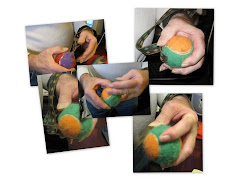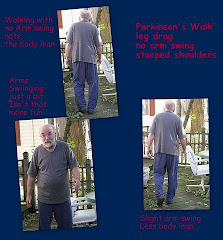We need a better roadmap for Parkinson's Disease
 |
| The PD summit has yet to be conquered |
You wonder if you are the only one missing the keys? How do you take this mass of information and reduce it, refine it to create a map to actually get to a treatment which will not only stop progression but reverse it?
We have Centers of Excellence for research and treatment. The Morris K Udall Parkinson's Disease Research Act of 1997 was established in part "to provide for the expansion and coordination of research regarding Parkinson's disease, and to improve care and assistance for afflicted individuals and their family caregivers." But much of the research being done for PD and other conditions does not fall under that umbrella.
We have Clinical Guidelines for diagnosis and management of PD - primary and secondary care at the National Guidelines Clearinghouse.gov. The concept is both reassuring and frightening because it has an inherent structure which can slow progress of care but may not allow for slowing the progression of the disease without a readjustment period.
 |
| Searching for.... |
We worry that laboratory focus will be lost in the fascination for the details. Perhaps we don't comprehend because we are not scientists but as people with hope and confidence. Perhaps it is the frustration level and the fears that keep us from understanding. Or we don't see an organization of information, a compilation of past and present knowledge, because it just doesn't exist.
Previously we have discussed the importance of recognizing and treating the precursor symptoms, of identifying biomarkers in order to delay onset, to implement preventative therapy. We've talked about proactive patients being good "teachers" for doctors because the patient has the motivation to search for more therapeutic information about his/her condition. While some patients rely totally upon the medical professional, these days many more realize that they must integrate the common experiences of others in order to find effective supplemental treatments. And still others step completely outside the box on the promise of a cure.
The beauty of patient experience is that it can open eyes to possibilities and potential as doctors begin to treat patients and not diseases. This is one reason that we go to every medical appointment with printed material even if it is a revised medication and supplemental list which explaines why, when, how each treatment is taken. Next we will add to a second list which explains changes in physical, cognitive and emotional condition. Many doctors do seem to hear better with their eyes...if they are going to take the time to listen at all.
Our perception of the Parkinson's knowledge base seems at times much like the assorted parts and pieces the blind men explore when surrounding the elephant while trying to describe it. Of course we need a complete description of an elephant, not an abstract simile nor an elephant by committee. That is where Sergey Brin of the Google team found himself when his genetic testing disclosed the same LRRK2 mutation exhibited by his mother, a PwP. Mr Brin has worked himself to a position where he has acccess to the resources to do something. He has means create the protocols to organize the data to see the patterns of the elephant. To bring, eventually, sentient life to the elephant.















No comments:
Post a Comment
Welcome to Parkinsons Focus Today.
We are delighted to hear from you by comment here
or through email as found in Contact Us.
Please do not include email addresses if leaving a comment online.
Email addresses are used only for email responses.
Spammers take note: your messages will not be published. The comments section is for an exchange of ideas, not for backlinks.